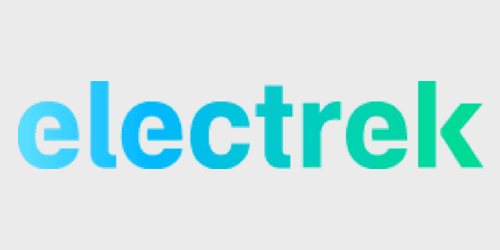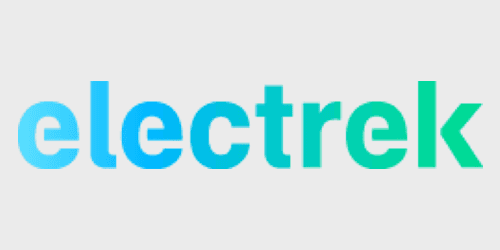
Tesla is suing Rivian and four former employees over allegedly stealing trade secrets after being hired by the electric pickup truck startup.
Rivian denies the claim.
Over the last year, Tesla has been aggressively going after startups who are hiring its employees and allegedly bringing internal information with them.
Tesla has an ongoing lawsuit against former employees who now work at Chinese startup Xpeng, who Tesla claims have stolen its Autopilot source code.
Last year, Tesla claimed self-driving startup Zoox stole logistic secrets and later, the self-driving startup now acquired by Amazon settled and agreed to pay Tesla an undisclosed amount and conduct an internal audit to make sure it is not using any Tesla trade secrets.
Now Tesla is suing another startup involved with Amazon, Rivian, over similar claims.
Tesla wrote in a new lawsuit filed this week in a California court:
“Rivian is knowingly encouraging the misappropriation of Tesla’s trade secret, confidential, and proprietary information by Tesla employees that RiVian hires. In about the past week, Tesla has discovered disturbing pattern 0f employees who are departing for Rivian surreptitiously stealing Tesla trade secret, confidential, and proprietary information—information that is especially useful for startup electric vehicle company. And Rivian encourages those thefts even though Rivian is well aware of Tesla employees’ confidentiality obligations. In fact, 13 Rivian recruiters are from Tesla, and they themselves are still subject to Tesla’s confidentiality obligations.”
In the lawsuit, Tesla also names 4 defendants who used to work at the California-based automaker.
Two of them, Tami Pascale and Kim Wong, were recruiters at Tesla until recently.
The automaker claims that they downloaded critical documents about mass recruiting for production and sales as well as important payscale documents before leaving:
“Tesla investigators discovered the misappropriation and interviewed Pascale by phone on July 6, 2020. Pascale falsely denied taking any documents from Tesla. When pressed, she continued her denial, claiming to only have taken personal documents. Only after investigators confronted her with specific documents she had taken, Pascale finally confessed to taking the confidential and proprietary documents.”
In one case, Tesla claims that they can prove a former Tesla recruiter now at Rivian instructed her to get specific documents from Tesla:
“On July 7, 2020, after her conversation With Duran and the same day that Wong received an update on her background check by Rivian, she sent at least sixteen highly confidential and trade secret recruiting documents from Tesla’s network to her Gmail account, including various guides and templates developed by Tesla—the very types of documents that Duran had instructed her that Rivian needed.”
Tesla even claims that one of the recruiters that went to Rivian kept her Tesla work laptop and refuses to give it back.
Another defendant, Jessica Siron, was an EHS manager at Tesla and she recently left to join Rivian has the director of EHS for the startup.
The automaker claims that she stole documents related to manufacturing projects:
“These documents consisted of highly sensitive trade secret, confidential, and proprietary engineering information about manufacturing project management, controls specifications for manufacturing equipment, specifications regarding manufacturing robotics, and manufacturing equipment requirements. These documents would be used rarely, if at all, by Siron as manager of Environmental Health and Safety, yet she exported them shortly after accepting her offer at Rivian.”
Furthermore, Tesla claims that Siron was uncooperative in trying to remove documents from her personal cloud.
The last defendant is Carrington Bradley.
Electrek reported on Bradley last month in our coverage about how Rivian was hiring employees from Tesla’s Supercharger Network to build its own fast-charging network:
Rivian Adventure Network: Electric pickup maker hires Tesla staff to build charging network
Tesla wrote in the lawsuit:
“Defendant Carrington Bradley worked at Tesla as Manager for Charging Programs until he left for Rivian on March 20, 2020. Mr. Bradley’s role at Rivian is Senior Manager for Charging Development—presumably to build charging network for Rivian to mimic Tesla’s Supercharger network.”
The company claims that Bradley used his inside knowledge at Tesla to target critical employees to recruit for Rivian’s effort:
“On March 19, 2020, the day before he left Tesla to go to Rivian, Bradley forwarded to his personal email address list of highly curated select group of high-level Tesla employees Who are experts in the deployment and management of charging networks—precisely the type of team Rivian needs to deploy its own charging network. The information would allow Rivian to target for recruitment the members of that group, which is responsible for the selection, deployment, and management of Tesla’s global Supercharger network.”
Tesla also anticipates adding two additional currently unnamed former employees who they believe “likely misappropriated Tesla trade secret, confidential, or proprietary information” as defendants at a later date.
After bringing up these claims to Rivian’s general counsel, Tesla was unsatisfied with the response it got from the startup and initiated the lawsuit.
Electrek contacted Rivian about the matter and the company issued the following response denying Tesla’s allegations:
“We admire Tesla for its leadership in resetting expectations of what an electric car can be. Rivian is made up of high-performing, mission-driven teams, and our business model and technology are based on many years of engineering, design, and strategy development. This requires the contribution and know-how of thousands of employees from across the technology and automotive spaces. Upon joining Rivian, we require all employees to confirm that they have not, and will not, introduce former employers’ intellectual property into Rivian systems. This suit’s allegations are baseless and run counter to Rivian’s culture, ethos and corporate policies.”
To date, Tesla counted 178 ex-employees who have been hired by Rivian roughly 70 of which joined Rivian directly from Tesla.
Here’s Tesla’s lawsuit against Rivian in full:
FTC: We use income earning auto affiliate links. More.



Comments